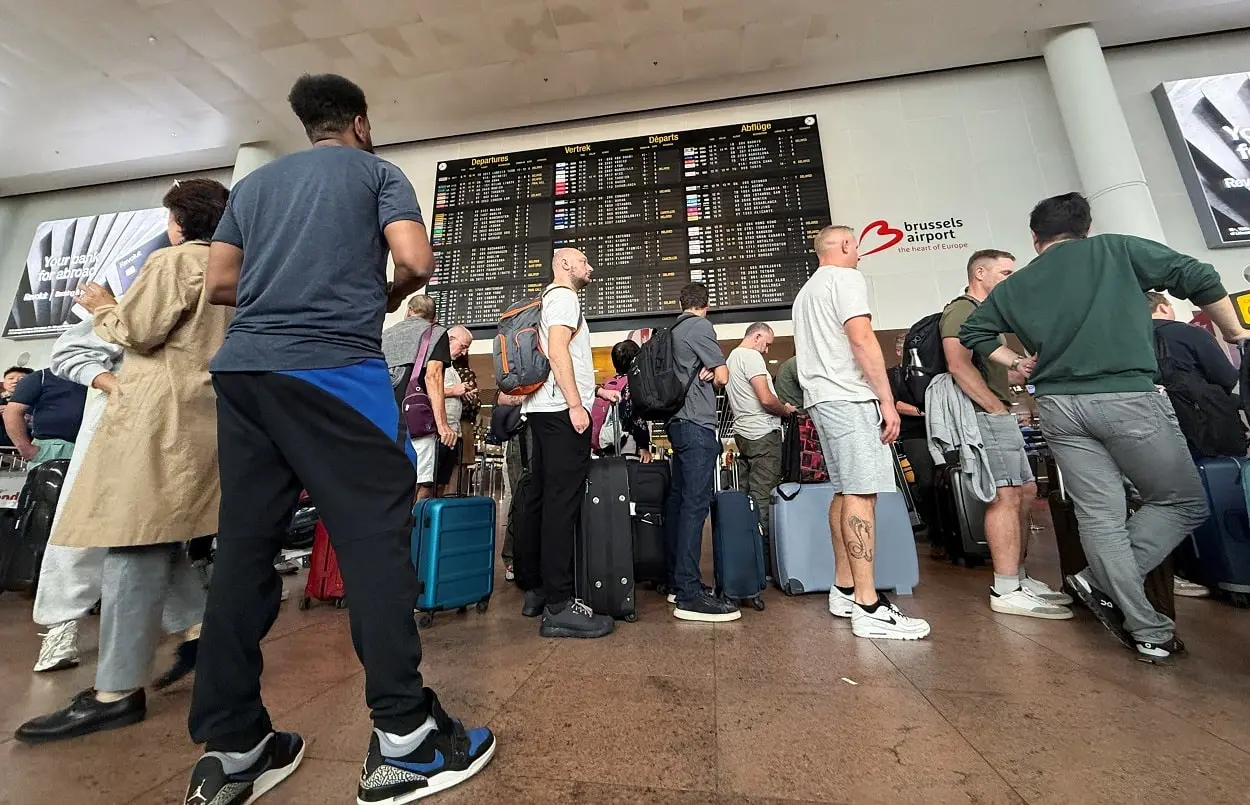Several major European airports, including Berlin Brandenburg (BER) and Brussels Airport, have recently been hit by severe technical problems linked to cyberattacks, Latvia Today reports. The disruptions have caused significant delays, highlighting vulnerabilities in Europe’s air travel infrastructure. (Latvia Today link)
In Berlin, the issue arose when a service provider for passenger check-in systems was compromised. As a precaution, airport administrators temporarily shut down registration systems, forcing airlines and staff to switch to manual processes. This led to longer queues, delays at boarding gates, and a cascading effect on flight schedules throughout the day.
While the airport itself was not directly targeted, the attack on its supplier revealed the fragility of interconnected systems that are critical for operations.
Brussels Airport confirmed it had suffered similar disruptions, particularly affecting automated check-in systems. Authorities warned passengers to expect delays and strongly advised travelers to check their flight status in advance and allow additional time for manual check-in and security checks.
The incident raised questions about whether airport infrastructure across Europe has adequate resilience against large-scale cyber intrusions.
London’s Heathrow Airport also issued a statement acknowledging possible delays, though it did not confirm a direct link to the cyberattacks. Airport officials pointed to “technical difficulties” with third-party providers responsible for check-in and boarding systems across several airlines.
Given Heathrow’s role as one of Europe’s busiest hubs, even minor interruptions can have ripple effects across international routes.
The recent incidents follow earlier infrastructure disruptions in the region. In April, Spain and Portugal experienced a massive power outage that, while not officially attributed to cyberattacks, highlighted the region’s vulnerability to systemic shocks. The Spanish government subsequently formed a commission to investigate the blackout’s causes.
In Brussels, the European Commission has already launched an in-depth investigation into the airport cyber incidents. A spokesperson stated: “We will draw the necessary conclusions and adopt measures if needed.”
The official emphasized that the EU is working “very closely” with national authorities and European electricity and technology operators to strengthen cybersecurity defenses.
Experts warn that cyberattacks on critical infrastructure are becoming increasingly sophisticated, often targeting not airports directly but their service providers and digital partners. Such indirect tactics can paralyze operations, erode public trust in air travel, and create economic losses for airlines, passengers, and governments alike.
As investigations continue, the events at Berlin, Brussels, and London underline the urgent need for Europe to bolster its defenses against cyber threats. The question remains: how prepared are European airports for the next wave of attacks — and what will it take to secure the skies against invisible digital enemies?
















